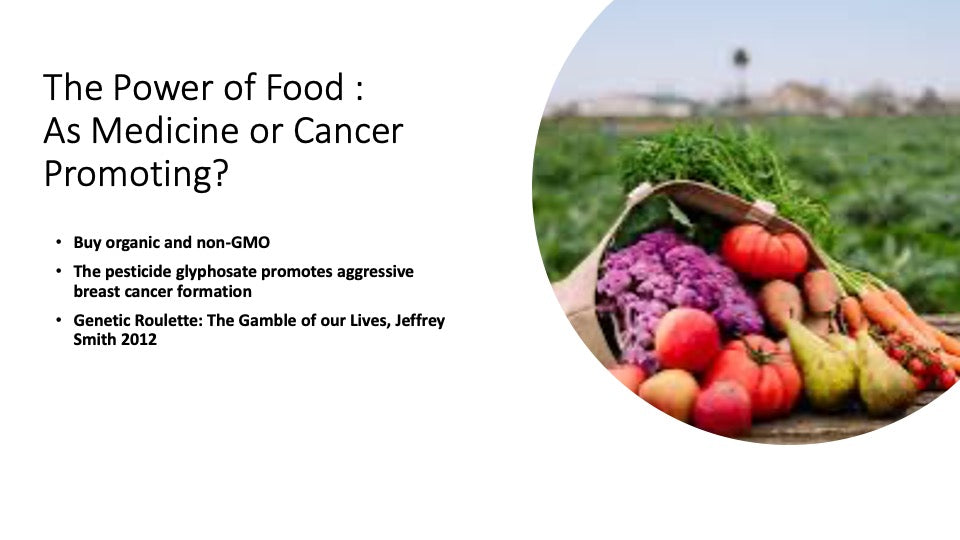Vegetable Oils and Cancer
Bullet Points:
- Certain fats (omega-3 and omega-6 fatty acids) are essential to the body and can only be obtained from our diets.
- The modern Western diet favors omega-6 over omega-3 by a 10-50:1 ratio (or more), a vast increase over the diets of the middle of last century and before.
- Certain metabolites of omega-6 are pro-inflammatory (and omega-3 anti-inflammatory), so diets high in omega-6 can induce chronic inflammation, which promotes cancer.
- Reducing our omega-6 to omega-3 ratio as close to 1:1 as possible will reduce chronic inflammation and help prevent cancer and other diseases caused by chronic inflammation.
Vegetable oils-toxic and cancer causing
Vegetable oils are toxic because they contain a high percentage of polyunsaturated fats (PUFAs). We need PUFAs, and they are not inherently bad. However, the danger comes from the extreme imbalance of these fats in our diet, which is amplified by how they are made and used, which makes them toxic and cancer causing. And while our bodies are designed to protect us from acute exposures to toxins, the current standard American diet (SAD), unfortunately, offers chronic exposure to the toxic effects of common PUFAs.
There are two groups of PUFAs, omega-6 and omega-3, each with a number of specific fatty acid compounds. These PUFAs are essential fatty acids for our cells, meaning our bodies need them but cannot synthesize them. As a result, we need to get PUFAs from our diets, and that is where the problems start.
Starting in the 1950s, the Western (or SAD) diet has moved sharply toward more highly processed foods (typically found in the internal aisles in your supermarket). These foods usually contain vegetable oils, often in surprisingly large amounts. Common vegetable oils used today include soybean, corn, canola, palm, sunflower and cottonseed. Importantly, these oils contain more omega-6 fatty acids than omega-3 fatty acids, often a lot more: soybean (~7x), corn (~45x), canola (~2x), palm (~40x), sunflower (~70z) and cottonseed (~250x)!
It’s About the Ratio
The result of the flood of vegetable oils in the modern Western/SAD diet is a rise in the omega-6 to omega-3 ratio from about 8:1 in the 1930s (and even lower in prior centuries) to between 10:1 and 50:1. For comparison, the ratio of omega-6 to omega-3 in our cells is about 1:1.5! So, most of us are consuming much too much omega-6 and too little omega-3. Does it really matter?
Omega-6 and omega-3 PUFAs are metabolized in the body to hormone-like substances called eicosanoids. It is easiest to think of omega-6 eicosanoids as pro-inflammatory and omega-3 eicosanoids as anti-inflammatory. Simplistically, the large imbalance in the modern diet toward the omega-6 type contributes to an overabundance of inflammation promoters in the body, leading to chronic inflammation, which is one of the primary hallmarks of cancer development.
Indeed, several studies have demonstrated that omega-6 PUFAs induce progression in certain types of cancer while omega-3 PUFAs possess a therapeutic role against certain types of cancer, and that eicosanoid compounds that are generated by omega-6s and omega-3s may be the link between inflammation and cancer. Another study showed breast, prostate and colon cancer are associated with the consumption of vegetable oils resulting from an imbalanced omega-6 to omega-3 ratio.
You might ask why can’t we just supplement with omega-3s?
Unfortunately, simply adding in more omega-3s might not be sufficient to reduce your cancer risk if you’re not also taking steps to significantly lower your omega-6 intake. One study demonstrated that a ratio of 2.5:1 reduced rectal cell proliferation in patients with colorectal cancer; whereas, a ratio of 4:1 with the same amount of omega-3 PUFA had no effect. And remember, 4:1 represents a significantly better than average ratio for those who consume the typical Western/SAD diet. Lower omega-6:omega-3 ratios was associated with decreased risk for breast cancer in women.
So, it’s all about the ratio - if your ratio is still too heavily weighted toward omega-6, taking that fish oil capsule likely isn’t helping much.
How PUFAs are Made and Used Causes More Problems
PUFAs are highly unstable compounds that are easily oxidized and become toxic during processing. When PUFAs are broken down and oxidized, toxic aldehyde byproducts such as Acrolein, malondialdehyde (MDA), and 4-hydroxynonenal (4-HNE) are produced. These toxic byproducts are highly reactive, creating free radicals in our body, which cause DNA damage and kill healthy cells. They also contribute to mitochondrial membrane damage. When consumed chronically, DNA mutations, altered gene expression, and mitochondria dysfunction can result.
Free radicals are highly reactive chemicals that play a major role in cancerous cell mutation (initiation) and create the perfect environment for cancer growth (promotion and progression). Free radicals promote the hallmarks of cancer through many pathways, including genetic instability, tumor promoting inflammation, mitochondrial/energy dysfunction, tumor angiogenesis, and promotion of metastasis. The mitochondrial dysfunction caused by the chemical cascade also allows dysfunctional cells to continue to grow, avoiding apoptosis (or programmed cell death), and promoting cancer transformation.
Because vegetable oils also lack oxidative stability, they can quickly turn rancid if left untreated. Food manufacturers combat this problem by adding synthetic antioxidants like TBHQ (tert-butylhydroquinone), BHA (butylated hydroxyanisole) and BHT (butylated hydroxytoluene) to the oils. Consuming these preservatives once in a while does not cause harm, but with chronic vegetable oil consumption, the accumulation of them can cause adverse effects such as liver enlargement and even liver tumors.
Despite the added antioxidants, PUFA instability continues after the vegetable oil leaves the factory. They break down readily when exposed to light, heat and chemical inputs, resulting in lipid peroxides. Lipid peroxides are a type of reactive oxygen species (ROS). ROS play a major role in cancerous cell mutation (initiation) and create the perfect environment for cancer growth (promotion and progression). ROS promote the hallmarks of cancer through many pathways of genetic instability, tumor promoting inflammation, mitochondrial/energy dysfunction, tumor angiogenesis, and promotion of metastasis. The mitochondrial dysfunction caused by the chemical cascade also allows dysfunctional cells to continue to grow, avoiding apoptosis, and promoting cancer transformation.
The influence of heating PUFAs on cancer formation has been studied in mice. The study compared the effects of feeding uncooked and thermally abused (repeatedly heated to high temperatures) soybean oil to mice with late-stage breast cancer and observing how their tumors metastasized.
The study found that eating the thermally abused soybean oil lead to epigenetic and biochemical changes that hastened the progression of late-stage breast cancer, increasing the spread of breast cancer tumors to the lungs of the mice. More metastatic lung tumors formed, and cancer cells proliferated more easily.
Soybean oil was chosen in the experiment because it is used most frequently in industrial deep-frying, and most of us regularly consume oil that has gone through the same repeated applications of heat as the thermally abused oil from the study.
Vegetable Oil Sources
In addition, most vegetable oils, like the commercially used soybean oil in the paper cited above, as well as corn, canola and others, are made from genetically modified crops. GMO crops are designed to be immune from the effects of the herbicide glyphosate (e.g., Roundup), and significant amounts of glyphosate can end up in the finished oils.
This is important since glyphosate inhibits the body’s removal of senescent cells, which are cells your body has told to stop dividing (and to be removed) due to advanced age or improper function. If not removed, senescent cells continue to live and produce inflammatory molecules called cytokines that promote cancer and, themselves, have the potential to develop into cancer cells.
What Should I Do?
The good news is that you need not avoid PUFAs entirely. Remember, they are an essential part of a normal, healthy diet. But considering average consumption patterns, it would be better to reduce our omega-6 PUFA consumption (by eating less processed food, eating out less, and avoiding cooking with highly processes vegetable oils) while aiming to consume more omega-3 based PUFAs from healthy sources like oily fish and flax.
Striking the right omega-6 to omega-3 PUFA balance, and doing so from healthier sources of PUFAs, will reduce chronic inflammation, decrease our risk of developing cancer and improve our health.
See Dr. Cate’s website https://drcate.com/ to learn more about the dangers of vegetable oils and what are healthy oil choices.

